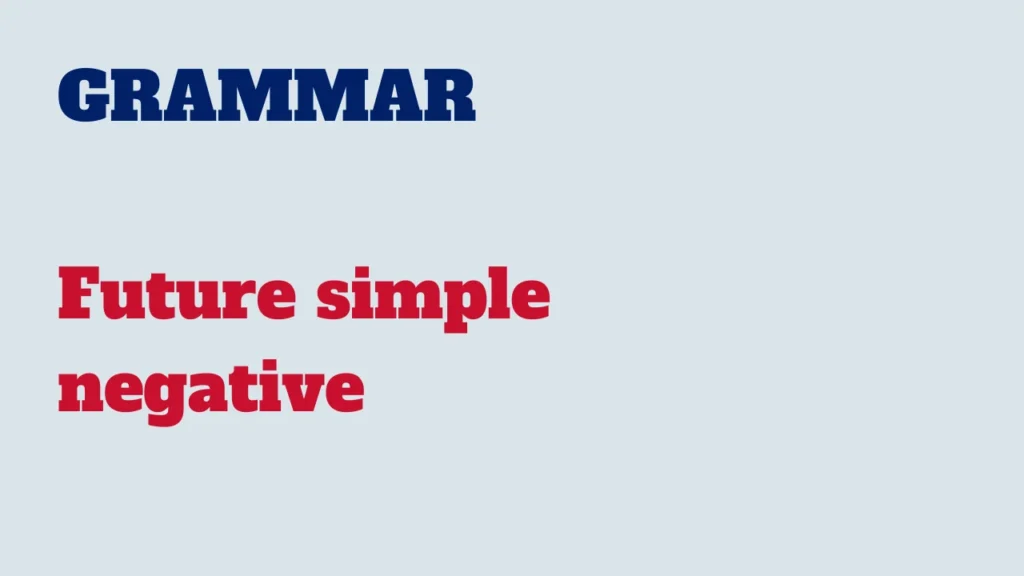In the future simple tense, negative sentences are formed by using the auxiliary verb “will not” (won’t) with the base form of the main verb.

Here’s how to construct future simple negative sentences:
Structure:
Subject + Will not (Won’t) + \[ Base form of the verb + Complements or additional information
Examples: Future simple negative sentences
I will not (won’t) play tennis tomorrow.
She will not (won’t) finish her homework.
We will not (won’t) visit the museum next week.
They will not (won’t) buy a new car.
John will not (won’t) travel tomorrow.
Table: Future simple tense – Negative form
| Subject pronoun | Future simple negative | Examples |
|---|---|---|
| I | will not (won’t) + base form of the verb | I won’t attend the meeting tomorrow. |
| You | will not (won’t) + base form of the verb | You won’t travel abroad this summer. |
| He/She/It | will not (won’t) + base form of the verb | She won’t buy a new car this year. |
| We | will not (won’t) + base form of the verb | We won’t host a party next weekend. |
| You (plural) | will not (won’t) + base form of the verb | You won’t participate in the competition. |
| They | will not (won’t) + base form of the verb | They won’t finish the project on time. |
Usage:
Negating future intentions:
Used to express that a future action will not happen according to one’s intention.
Example:
I won’t forget your birthday.
Denying predictions or assumptions:
Used to deny predictions or assumptions about future events.
Example:
The price of oil won’t increase significantly.
Expressing a lack of future plans:
Used to express that something is not part of a future plan or schedule.
Example:
They won’t attend the conference.
Declining future offers or promises:
Used to decline offers or promises about future actions.
Example:
I won’t be able to help you with the move.
Common mistakes to avoid:
Incorrect: She will not going to the party.
Correct: She will not go to the party. (Use “will not” or “won’t” with the base form of the verb.)
Incorrect: We will not visiting our friends next weekend.
Correct: We will not visit our friends next weekend. (Use “will not” or “won’t” with the base form of the verb.)
Understanding how to form and use future simple negative sentences allows you to express the absence or denial of future intentions, predictions, promises, or scheduled events in English. Practice constructing negative sentences in the future simple tense to enhance your language skills. Happy learning!



